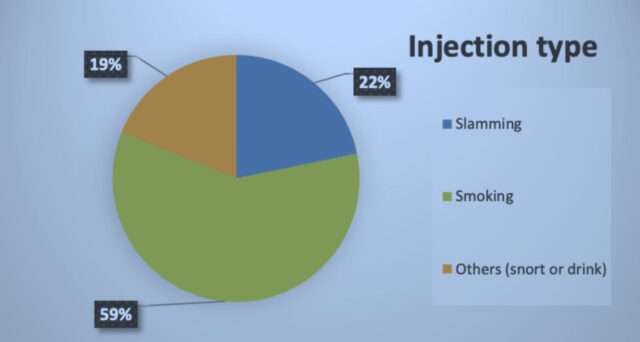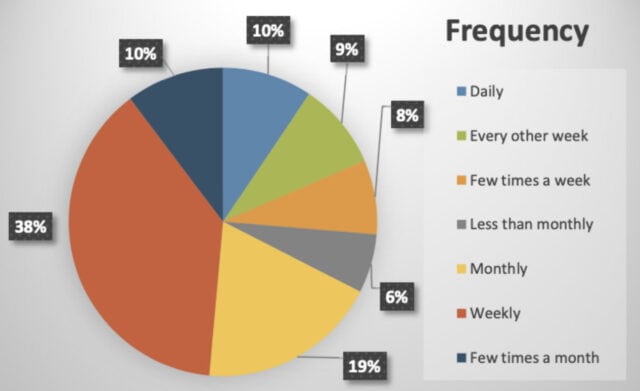New data released by Controlling Chemsex provides some compelling insights into the impacts of the use of chems on people in London.
The London-based charity has released a report that analyses the support that it has provided to people seeking help within the past 12 months.
“When we analysed the data, the most worrying insight was the rise in people slamming – taking meth or mephedrone intravenously…” explains Ignacio Labayen de Inza – founder of Controlling Chemsex. “A few years ago, slamming was seen as quite extreme, but over time, it’s clearly become normalised as more and more people are doing it.”

According to the data collected by Controlling Chemsex, 22% of people who sought help with their use of chems are injecting.
“The normalisation of slamming by users of chems is worrying because the impacts are much greater…” explains Labayen de Inza. “The high is higher – which means that the rush and the loss of inhibitions is more intense – but the comedown is more extreme and can often trigger paranoia, extreme anxiety, and other issues. Once you’ve started slamming, it’s much harder to stop or to control your use of chems.”
An analysis of the frequency of use reported by people accessing support from Controlling Chemsex is also concerning.

“More than half of the people that seek help from us are using chems at least once a week…” explains Labayen de Inza. “Beyond the significant health impacts that this entails, we also need to think about the social impacts. People using chems build their social networks around other chems users – they drift away from anyone not involved in the chems scene, become isolated from the support networks that they need when they try to take back control of their life.
“It’s the interdependence of social and sexual intimacy with the use of chems that makes this a really complex issue from a harm reduction perspective…” adds Labayen de Inza. “Traditional interventions to treat addiction just don’t seem to be effective when someone is struggling with issues surrounding chems. We’re still figuring out how best to help people.”
As demand continues to grow, one of the biggest barriers for people seeking help with issues relating to their use of chems is the lack of specialist support available.
“We’re only a small team but we receive requests for help from people all around the world…” explains Labayen de Inza. “Our first priority has to be helping people in the UK, because that’s what our funding is for. We get a lot of queries from health professionals in other countries wanting to learn from our experience, so we’re doing our best to share what we’ve learnt so far, trying to help as many people as possible.
“We’ve been working with Impulse Group to build an online course to make free support available to everyone – wherever they are in the world…” adds Labayen de Inza. “The Global Chemsex Toolbox is a free 8-week virtual workshop that will be available from 23 March. You can take part without registering or having to share any personal details.”
If you are having issues around Chemsex, you are not alone. There is help at hand: https://controllingchemsex.com/


















